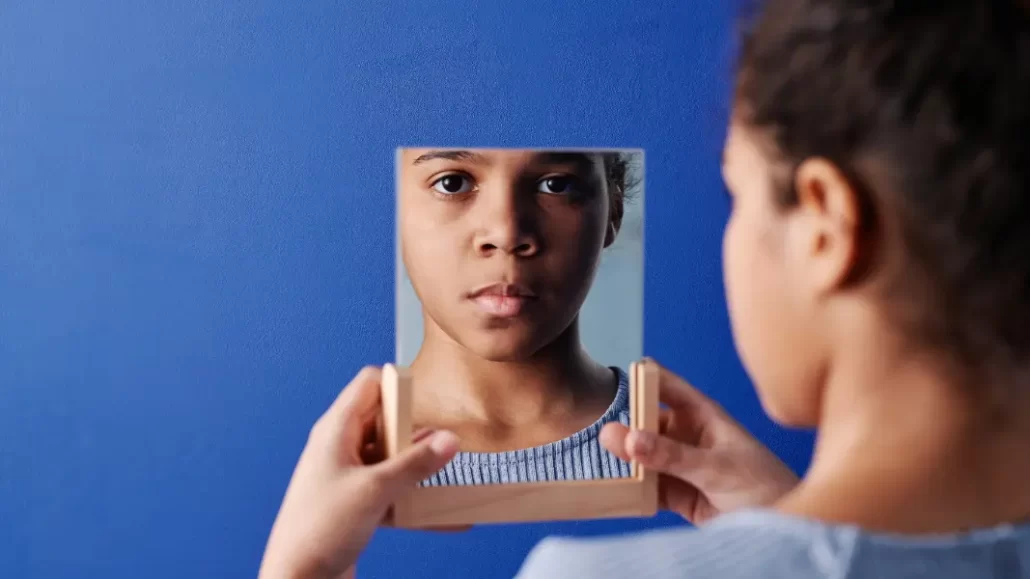Tips for Body-Positive Parenting [Transcript]
Body-positive parenting is a parenting approach that helps us foster a positive body image in our kids.
Model a Healthy Relationship with Yourself
First, one way to encourage a healthy body image in children is to model a healthy relationship with ourselves. We can start to do that by taking a look at the way we talk to ourselves. We all tend to have a monologue running in our minds. When that monologue manifests in our words and actions, what does it sound like to our kids?
Kids listen and observe everything we say and do. They look to adults to see how we relate to ourselves and to others in the world. If they see us frequently criticizing ourselves, they may begin to talk to themselves in a similar self-deprecating way. If your child watches you get frustrated and hears a response such as, “I’m so stupid; why did I do that?”, they’ll begin to believe that mistakes and imperfections should be met with criticism and shame. However, if they hear a response such as, “Wow, I’m surprised I made that mistake. I wonder what happened,” it teaches them that mistakes can be met with compassion and curiosity.
This relates to body image because diet culture thrives on poor relationships with ourselves. Diet culture is the belief that smaller bodies are inherently better and more valuable than larger bodies. If a child is used to hearing and applying self-deprecating language and then sees a weight-loss advertisement, they are far more likely to believe that there is something wrong with their physical appearance and begin to pick apart their body. Equipping children with positive self-talk as a way to build a healthy relationship with themselves is the first line of defense against diet culture.
Avoid Excessive Focus on the Body
Another way to help kids build a positive body image is to model not focusing too much on your body. As a culture, we put a lot of emphasis on physical appearance, even with children. Compliments like “Your hair looks so pretty today,” and “that dress makes you look so petite,” teaches kids that having a certain kind of physical appearance is a way to get attention and praise. Rather than focusing on physical appearance, try complimenting kids for things like sharing toys, setting boundaries for themselves, or any other skill they display that you want to foster.
Read more about body image and mental health
Don’t Moralize Food
Finally, we want to stay away from moralizing food in the home. We don’t want to say we are “bad” for eating cookies or that ice cream is a “bad food.” This will heighten fear around certain foods and will likely lead to a complicated relationship with nutrition. A healthy body image tends to be supported when our relationship with food is stable and well-rounded rather than fear-induced.
Rather than teaching that certain foods are good or bad, we want to emphasize the importance of listening to our bodies and getting curious about the kinds of food they are asking for. If our bodies are craving high-calorie foods, there’s a good chance we haven’t eaten enough calories today. When we teach children to trust and listen to their bodies, it is less likely that diet culture will teach them how to manipulate their hunger and fullness cues in unhealthy ways. Additionally, if they learn that their instincts can and should be listened to, it helps cultivate a healthier relationship with their emotional self.
Want help working on body positivity with your kids? You may want to consider working with an individual therapist. Click here to learn more!
What some ways you foster body positivity in your children? Leave your comments below!
- Tips for Body-Positive Parenting [Video] - March 16, 2023
- A Guide to Exploring Your Gender Identity - June 10, 2021
- A Guide to Navigating Open Relationships and Jealousy - February 10, 2021





